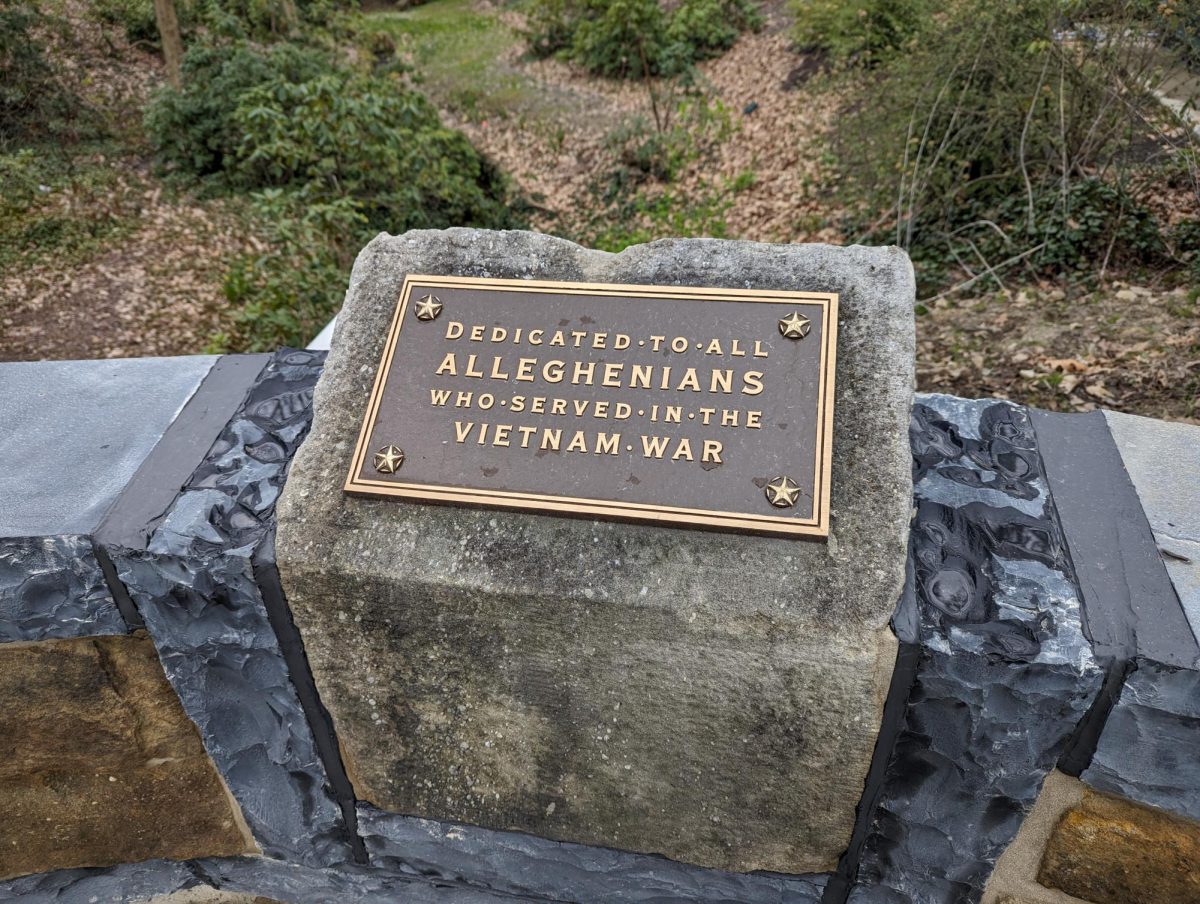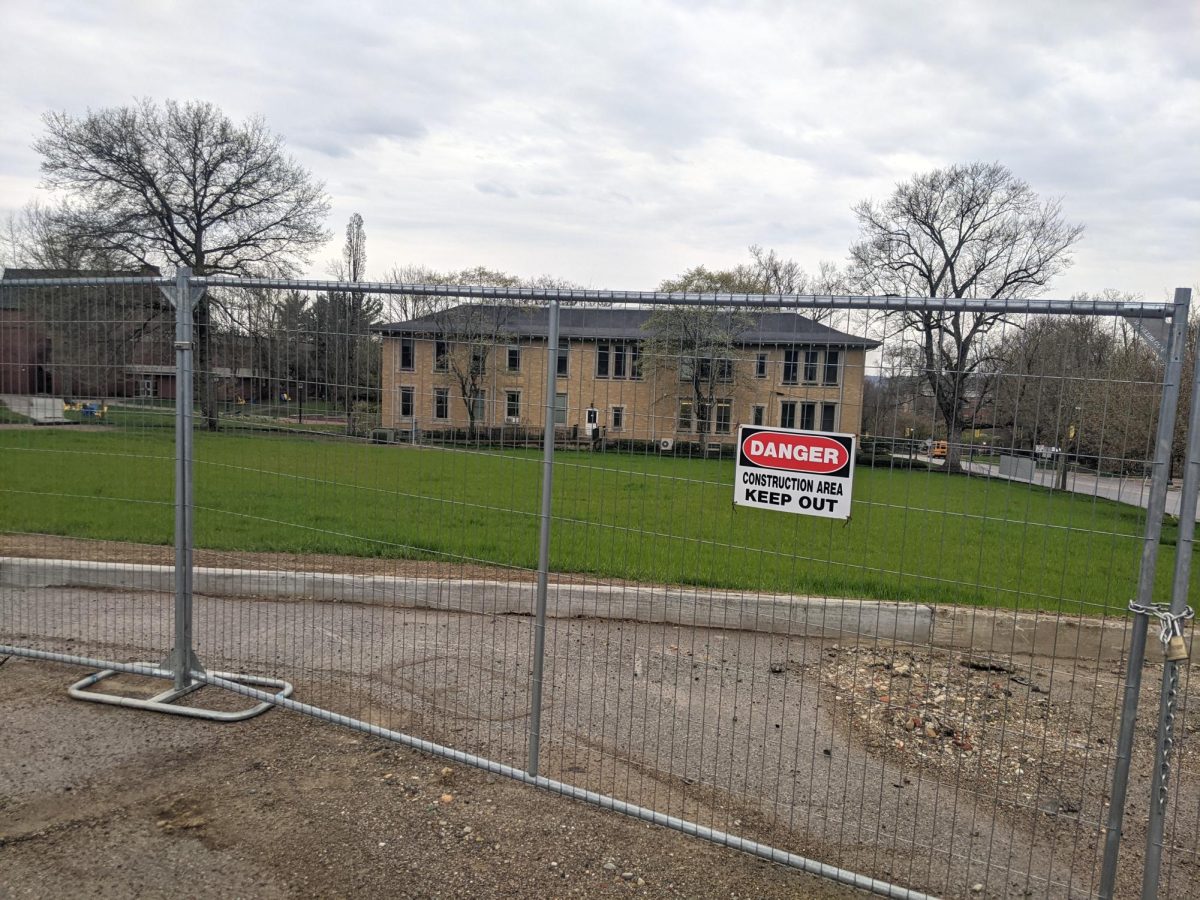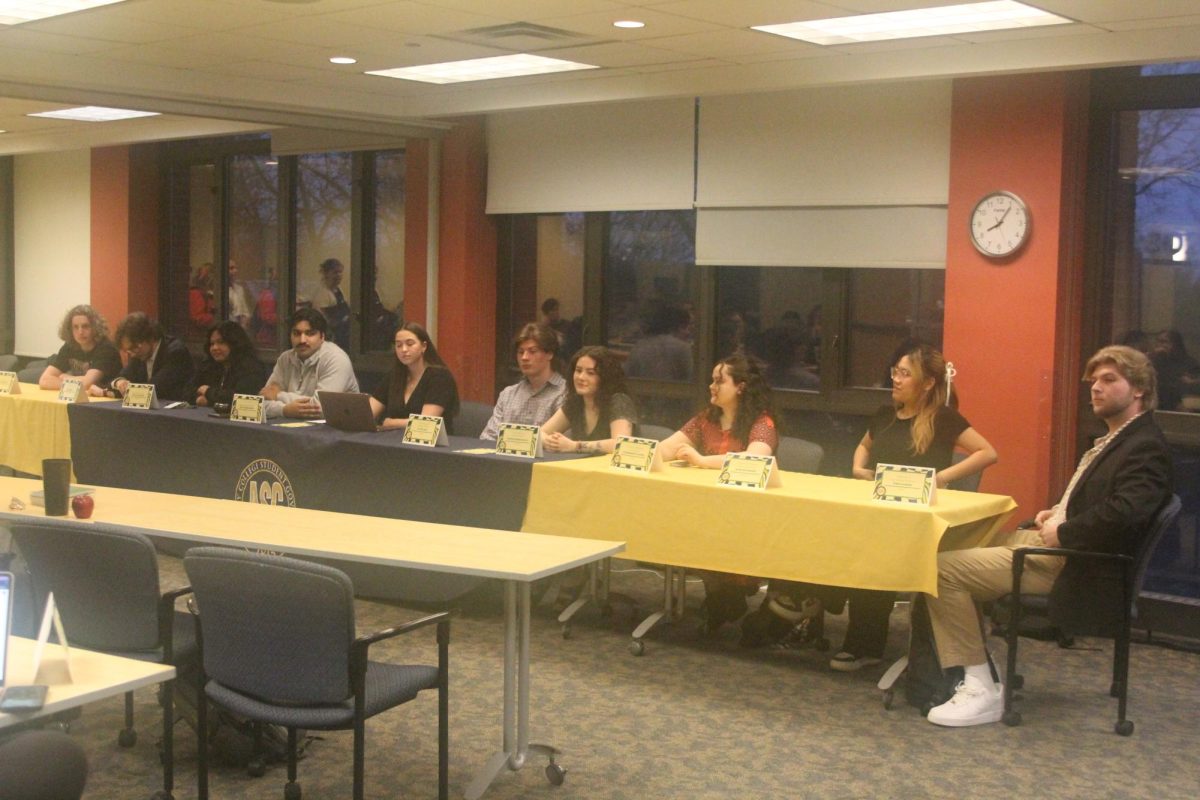By PASQUALE DiFRANCESCO
Contributing Writer
After the “Commitment to Inclusivity” failed to receive enough votes to pass at the Nov. 12 Allegheny Student Government meeting, the Diversity Initiatives Committee invited students to show support for the initiative by voicing their opinions at the following meeting.
“We started to gather support even before Nov. 12,” said Katie Beck, ’14, director of diversity initiatives. “The DIC reached out to clubs, classes and other groups across campus to try and talk everyone we could into coming.”
Senators, cabinet members and more than 60 students packed Campus Center rooms 301/302 on Tuesday, Nov. 19, as ASG prepared to hold a second vote on its adoption.
Students lined the back of the room and some even flooded into the hallway. They sat against the walls and among senators in the isles.
“I was starting to get concerned about fire safety hazards,” said Gretchen Symons, director of student involvement and student government adviser.
“The presence of all of these students in our meeting was a reflection of what the students wanted on the campus,” said vice president Larry Hailsham, ‘15. “I think that’s great.”
The Commitment, as it is more commonly known, is legislation intended to encourage practices of inclusivity on campus. Here’s how it works: If an ASG recognized club or organization decides to accept the Commitment, it must complete a series of trainings and amend its constitution to solidify the adoption.
The executive members in the club must then participate in two out of the three trainings: Safe Zone training I, Bystander training, or any other training approved by the DIC. Examples of accepted training would include the Emerging Leader Retreat, the Collegiate Leadership Conference or Safe Zone training II and III.
“We hope that people will commit to inclusivity so all members in their perspective clubs feel safe and included,” Beck said.
Once the clubs’ executive members have completed the trainings, they must confirm the steps with the DIC and then engage in a form of “meaningful reflection” with either the DIC or with the Center for Intercultural Advancement and Student Success. The individual clubs would determine these reflections.
In return, participating clubs receive a $100 award to be placed in its ASG budget as an incentive for participating. This is a one-time reward that is only offered to the club the first year its members complete the Commitment. The club is then recognized as a supporter of inclusivity on campus.
When it was time to vote on the initiative, students, senators and cabinet members shared their opinions on the matter.
“I think this is a step in the right direction, although I do disagree with the incentive,” said Senator Leslie-Paul Jamerson, ’15.
While senators and cabinet members were discussing the proposed legislation, students clapped their hands and stomped their feet to show support.
“I think this was OK,” Beck said. “If senators can express themselves through knocking then the constituents should be able to clap and make noises as well.”
Near the end of the meeting, Beck suggested that ASG hold a straw poll to gauge constituent opinion on different aspects of the commitment. This contradicts the Roberts Rules of Order student government uses to maintain order and structure in its meetings.
Symons does not consider lapse in procedure to be a big issue.
“You could argue strictly that students couldn’t talk but we really don’t operate that way at Allegheny,” Symons said. “Here we try to operate in the best way we can as a community. Sometimes it makes things messy. But I think it’s worth it.”
In spite of the messy procedures, the initiative passed at the end of the night.
Some students are still skeptical of the initiative’s ability to foster any lasting change on the campus.
“I think it’s a great idea, but the push to get this passed came on pretty strong, almost too strong,” said Matt DeMichiei, ’15, who attended the Nov. 12 meeting. “I think the discourse around the topic was not as inclusive or as effective as it could have been.”
Students also questioned logistical aspects of the legislation.
“What happens five years from now when a new board comes in and a person decides not to get trained,” said Becca Cohen, ’15. “It’s a good idea in theory but there’s no teeth to it to keep it going in the future.”
Hailsham was not surprised by their concerns.
“I think that there were a lot of unconventional methods to get this passed but it’s something that has never been done before,” Hailsham said. “I see it being implemented and if there are any problems, we will fix them.”
“It was complicated because so many people wanted to voice their opinions,” Beck said. “People really supported the initiative itself, but there was a lot of debate around the details.
“We’re going to do more information sessions next semester,” Beck said, referring to the DIC. “We hope about 25 clubs per year will do it. We hope it becomes a part of their culture, for clubs to hold this as a value.”






